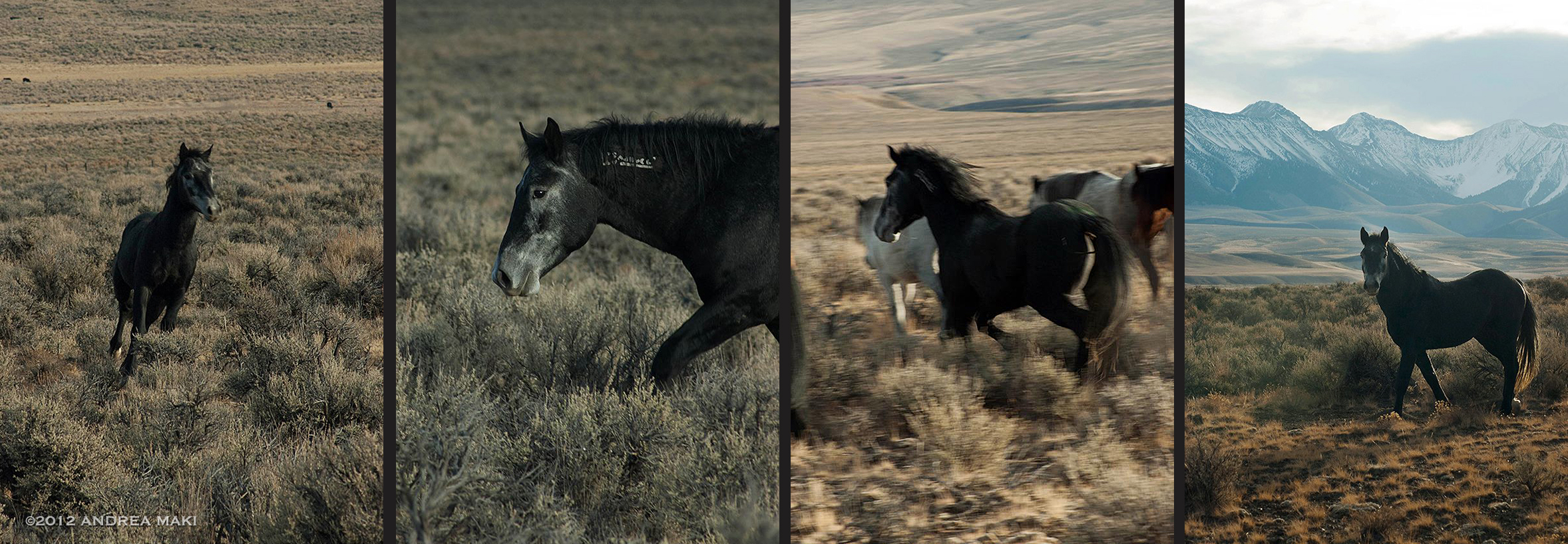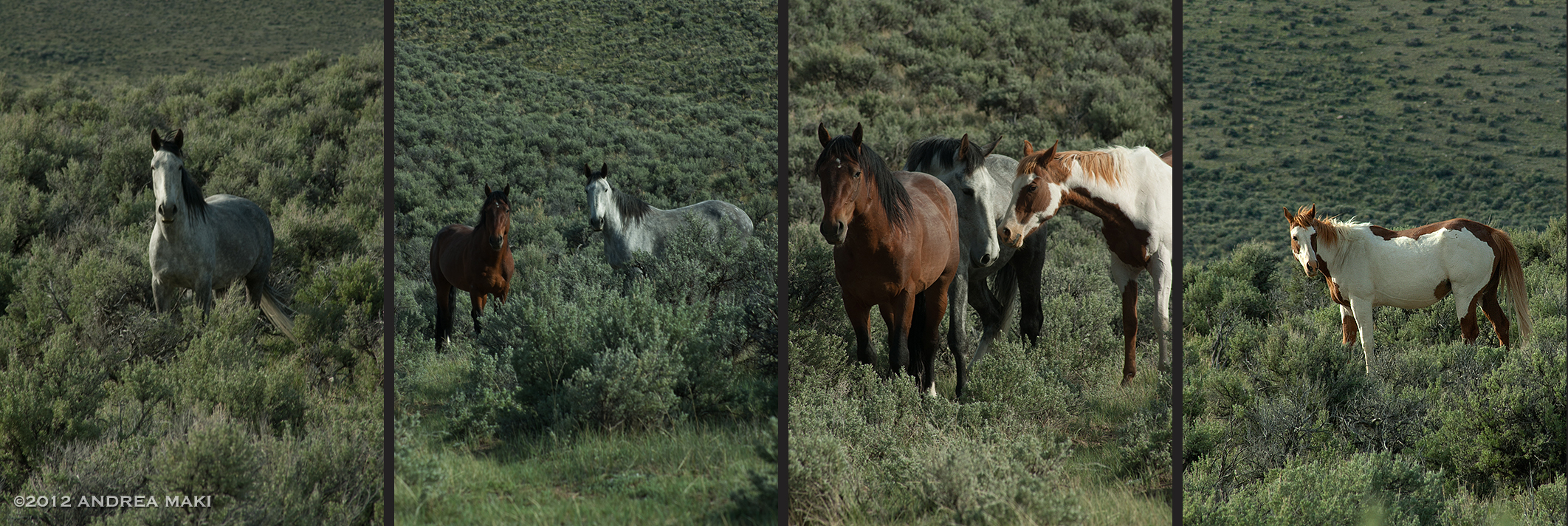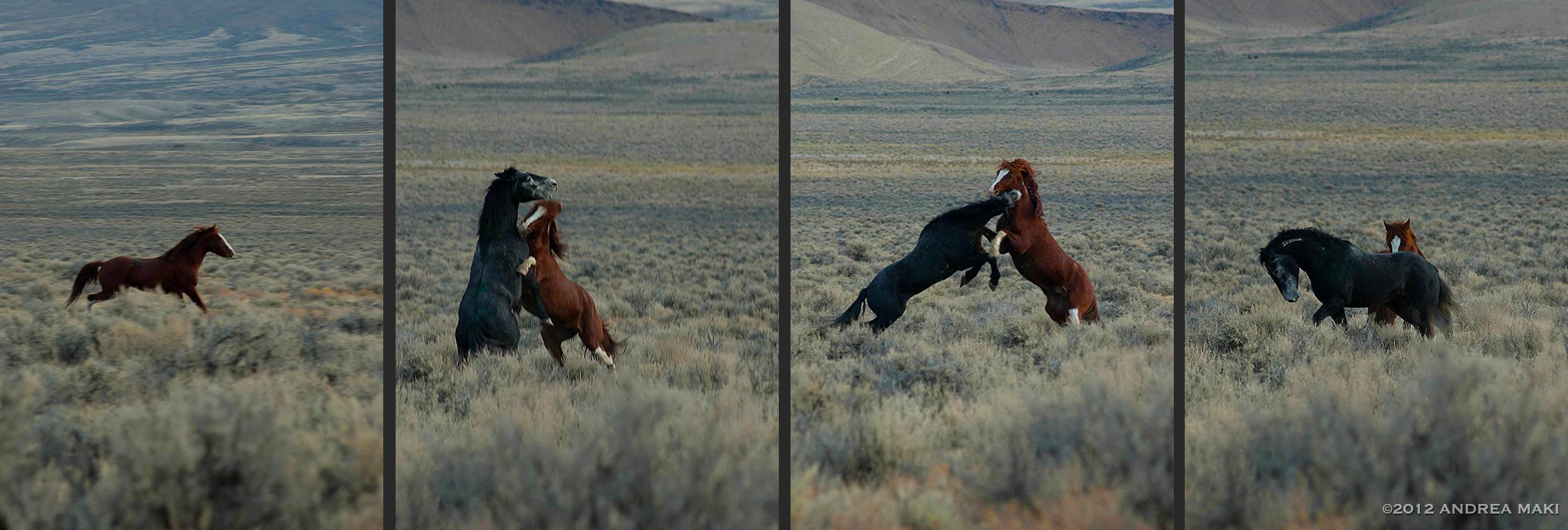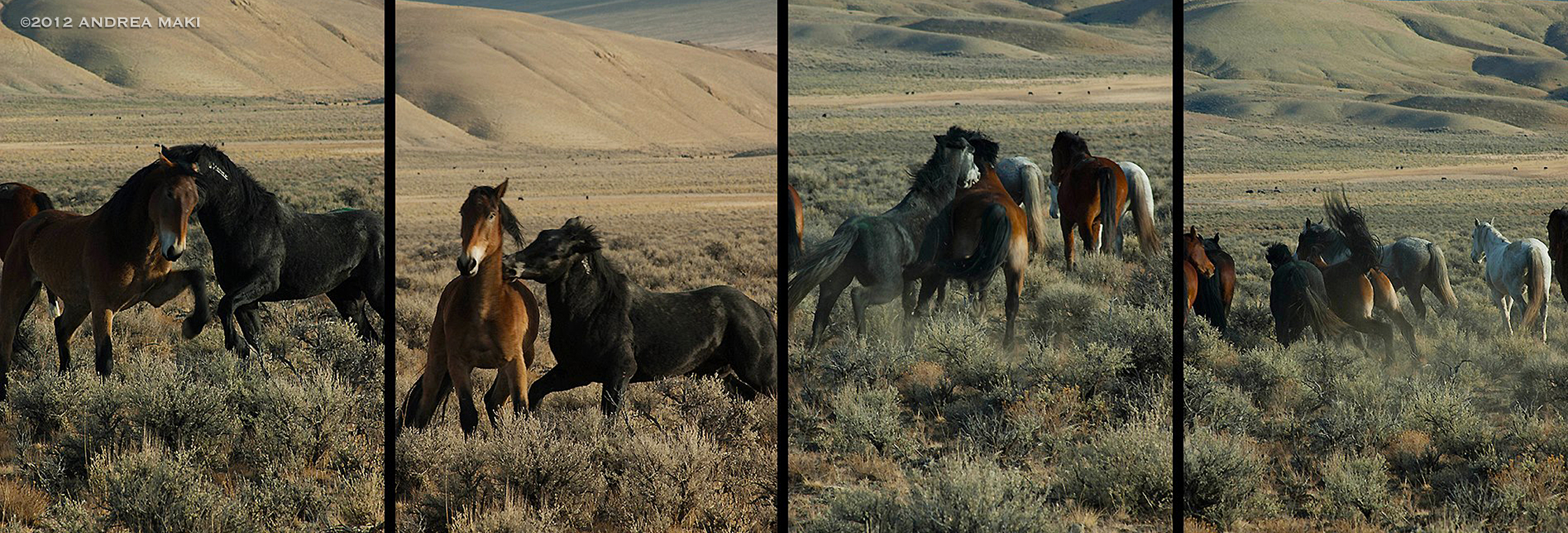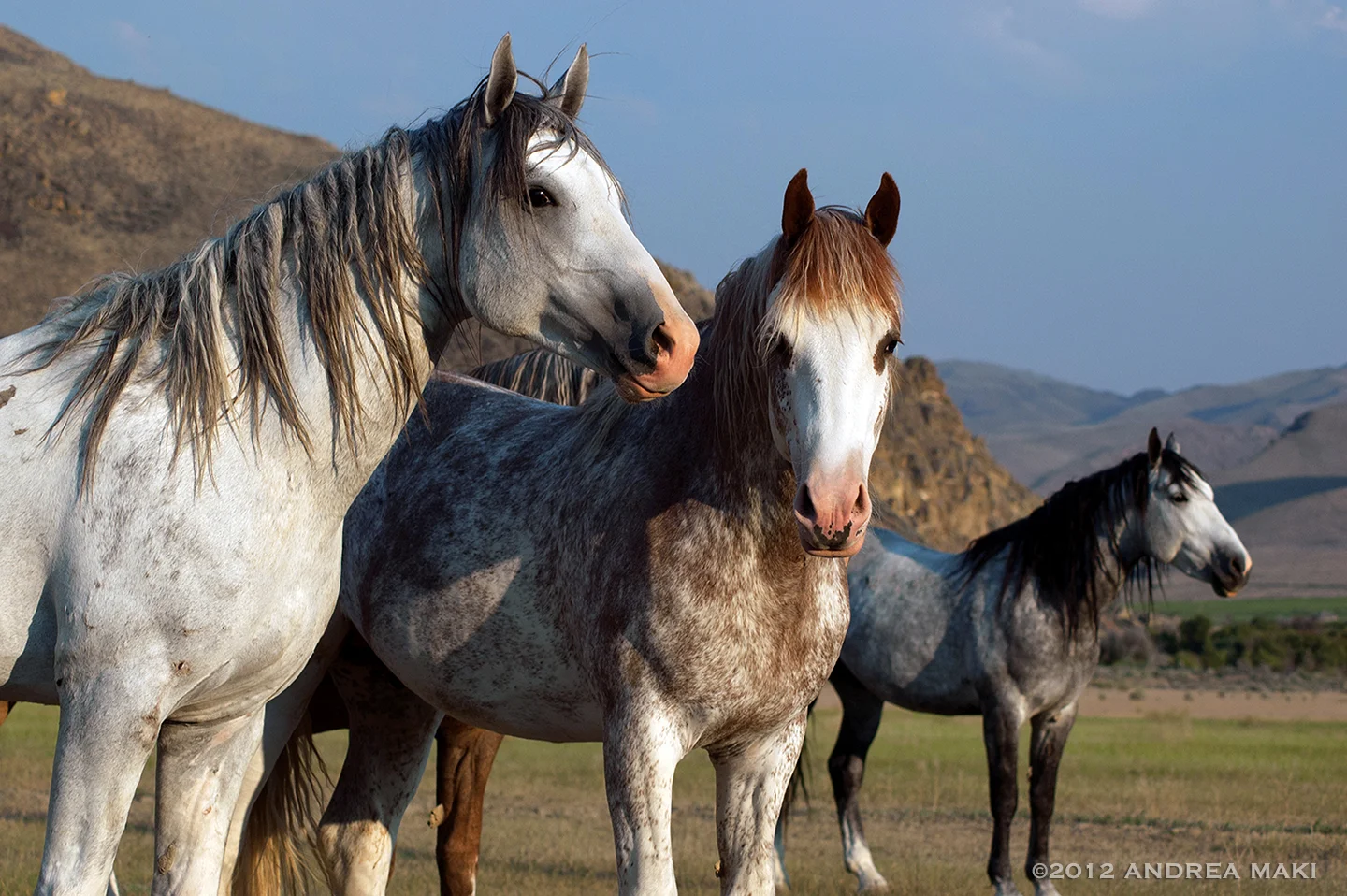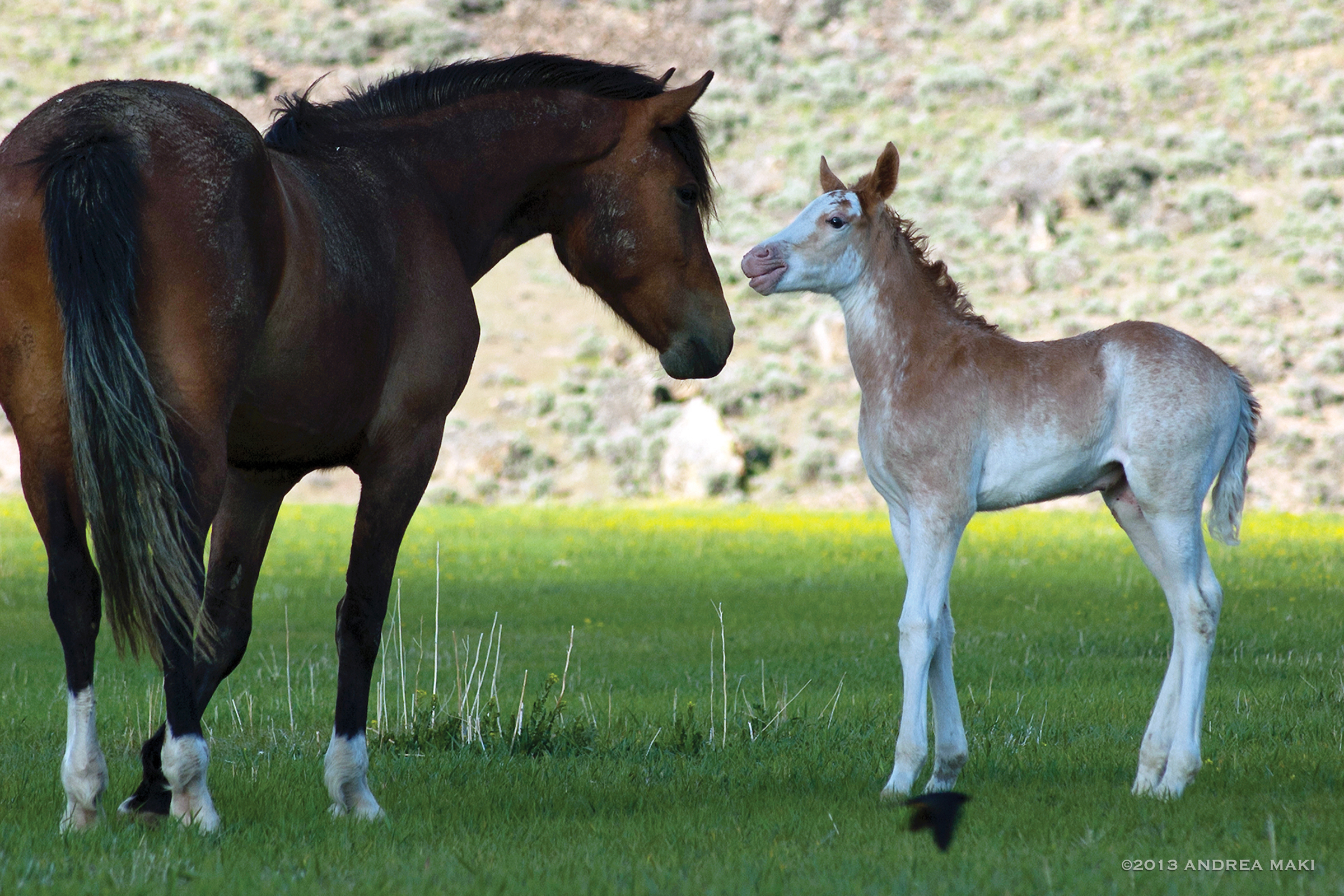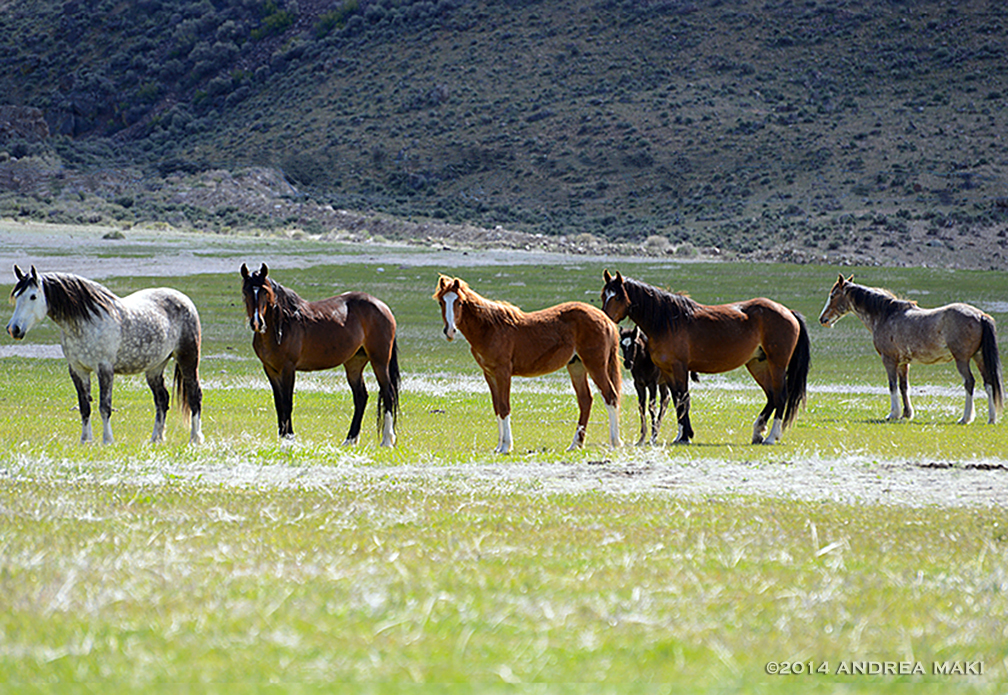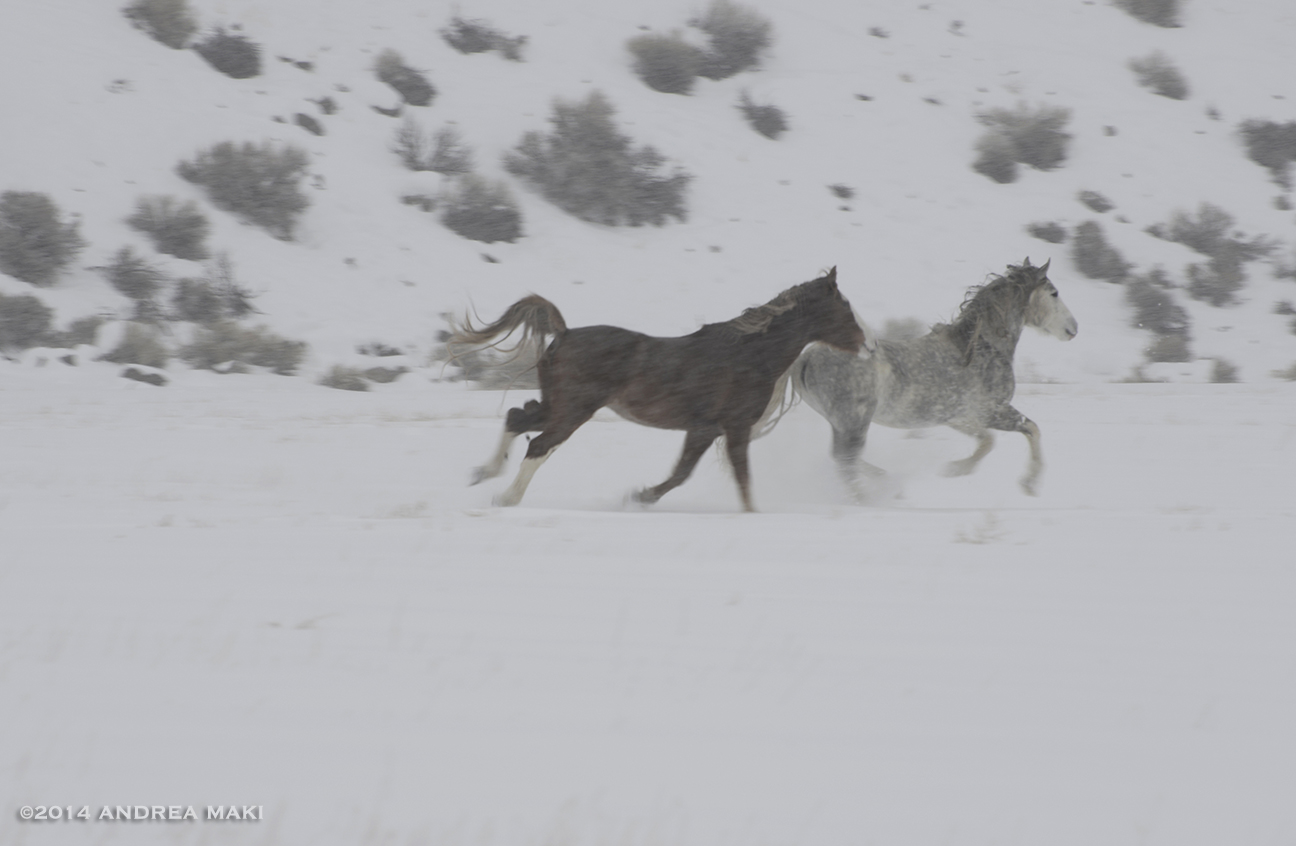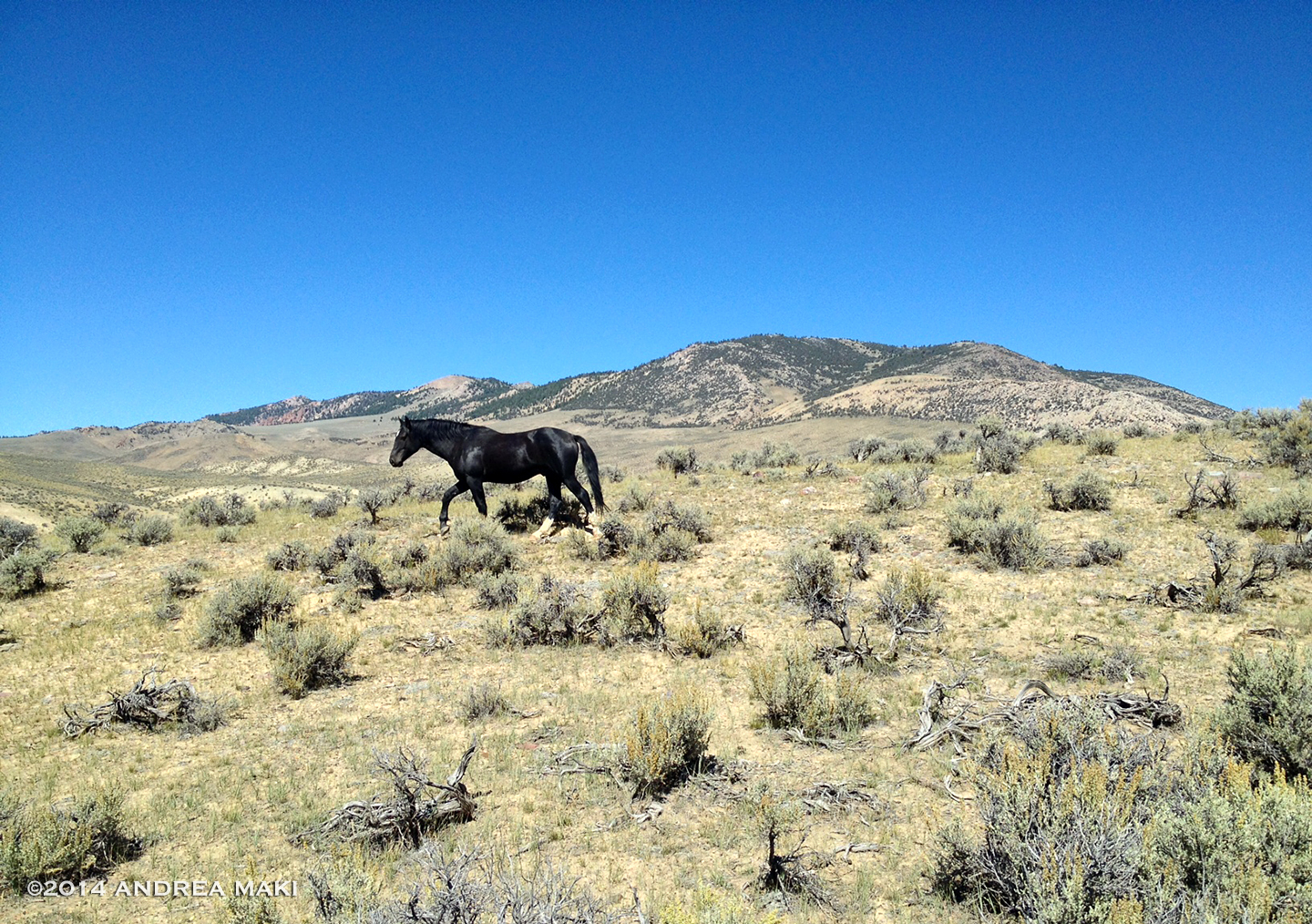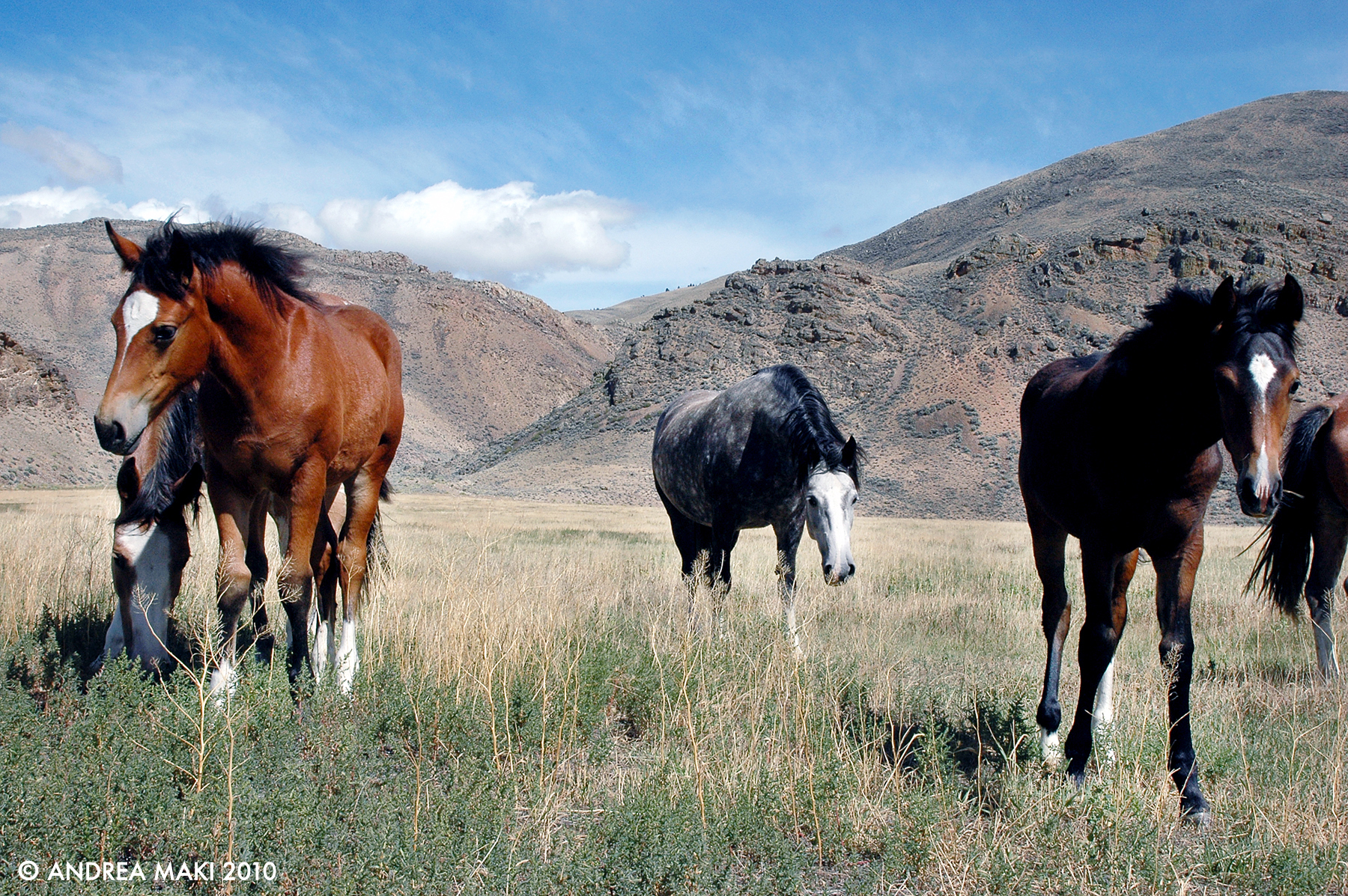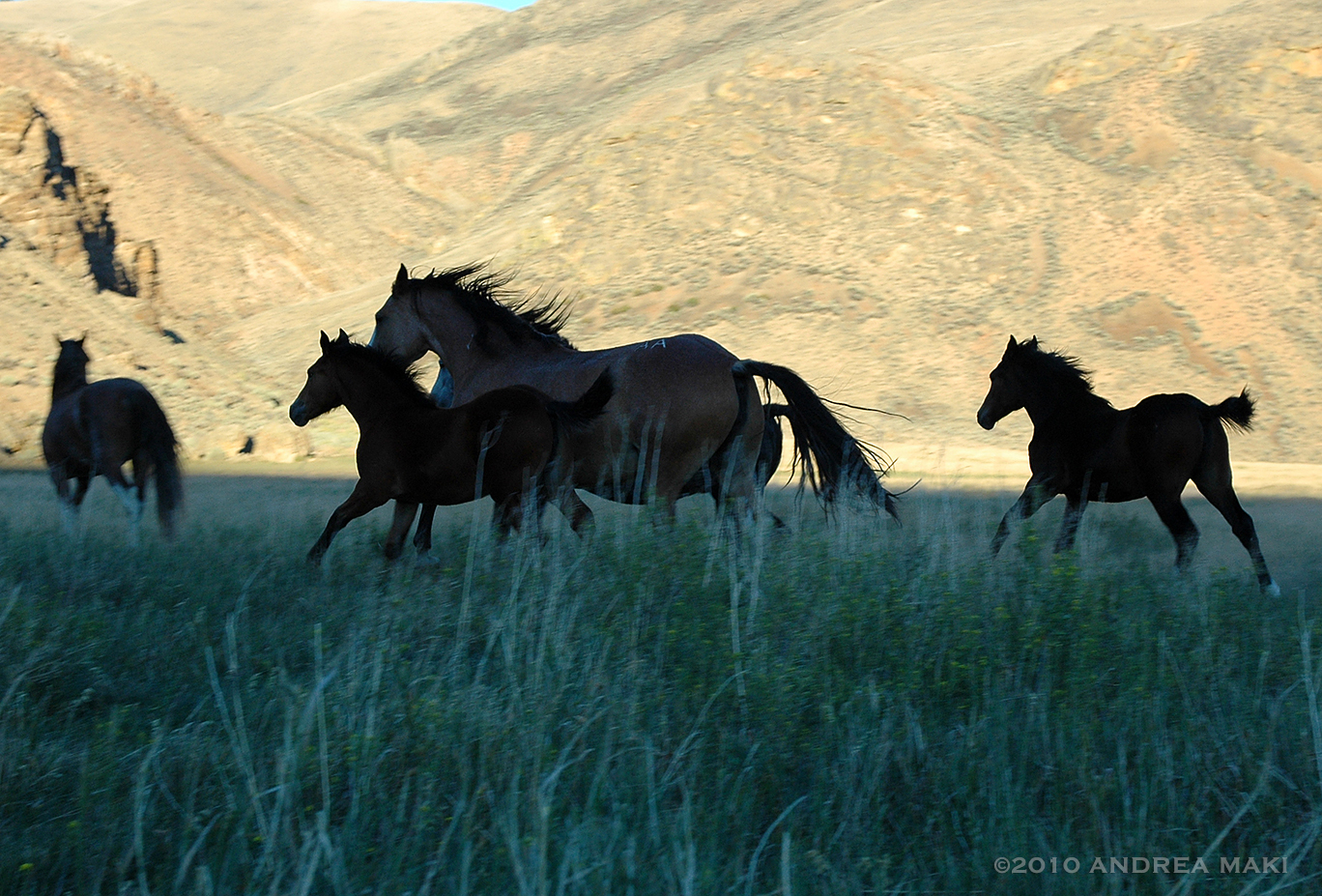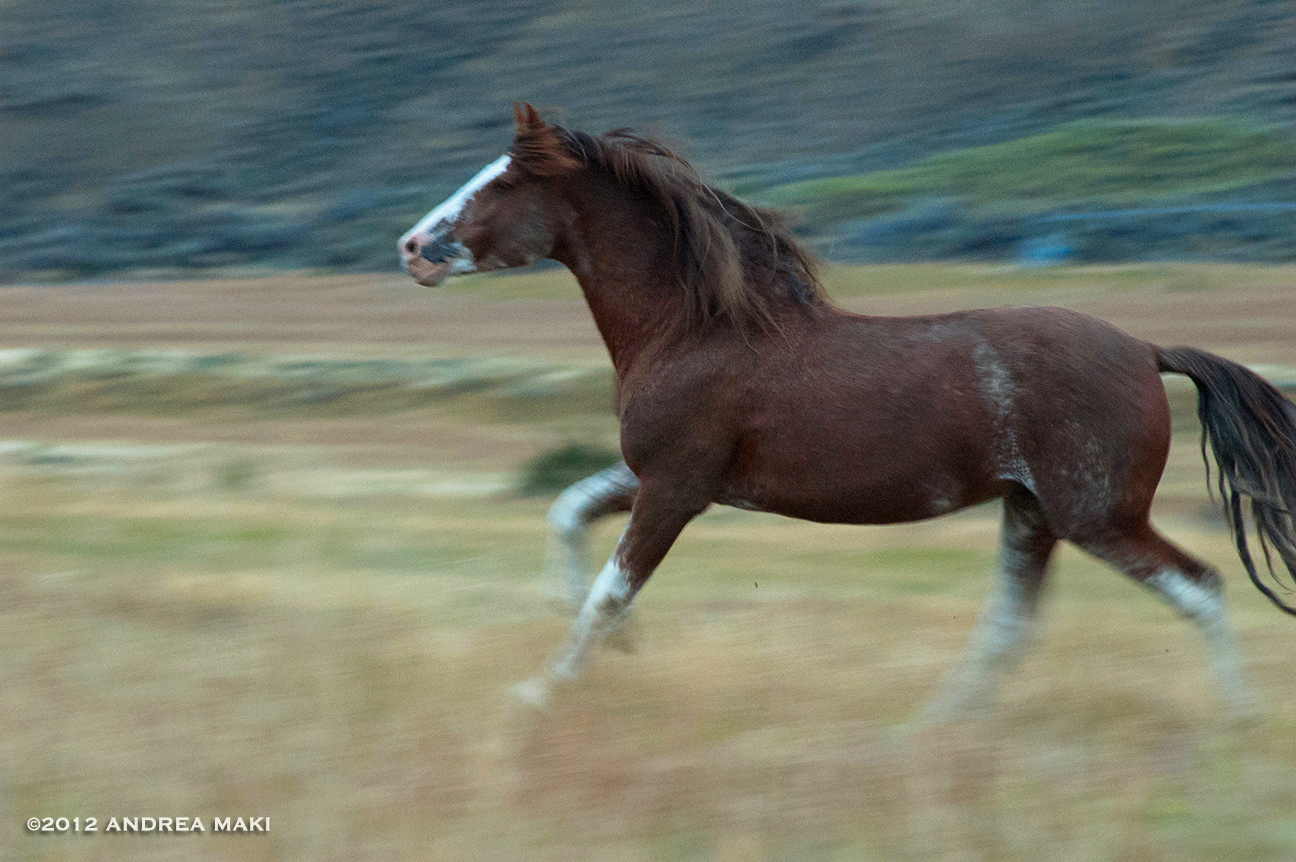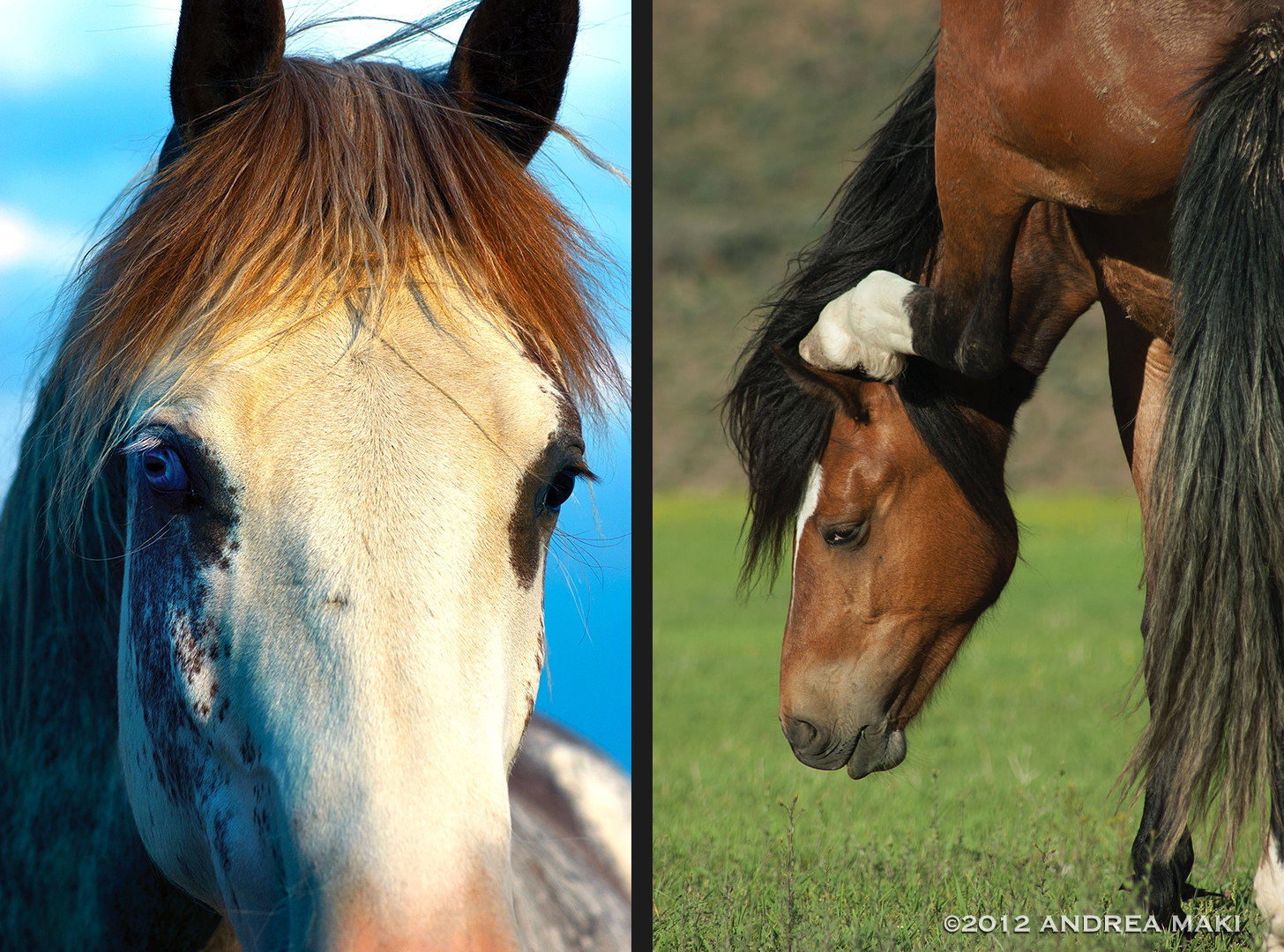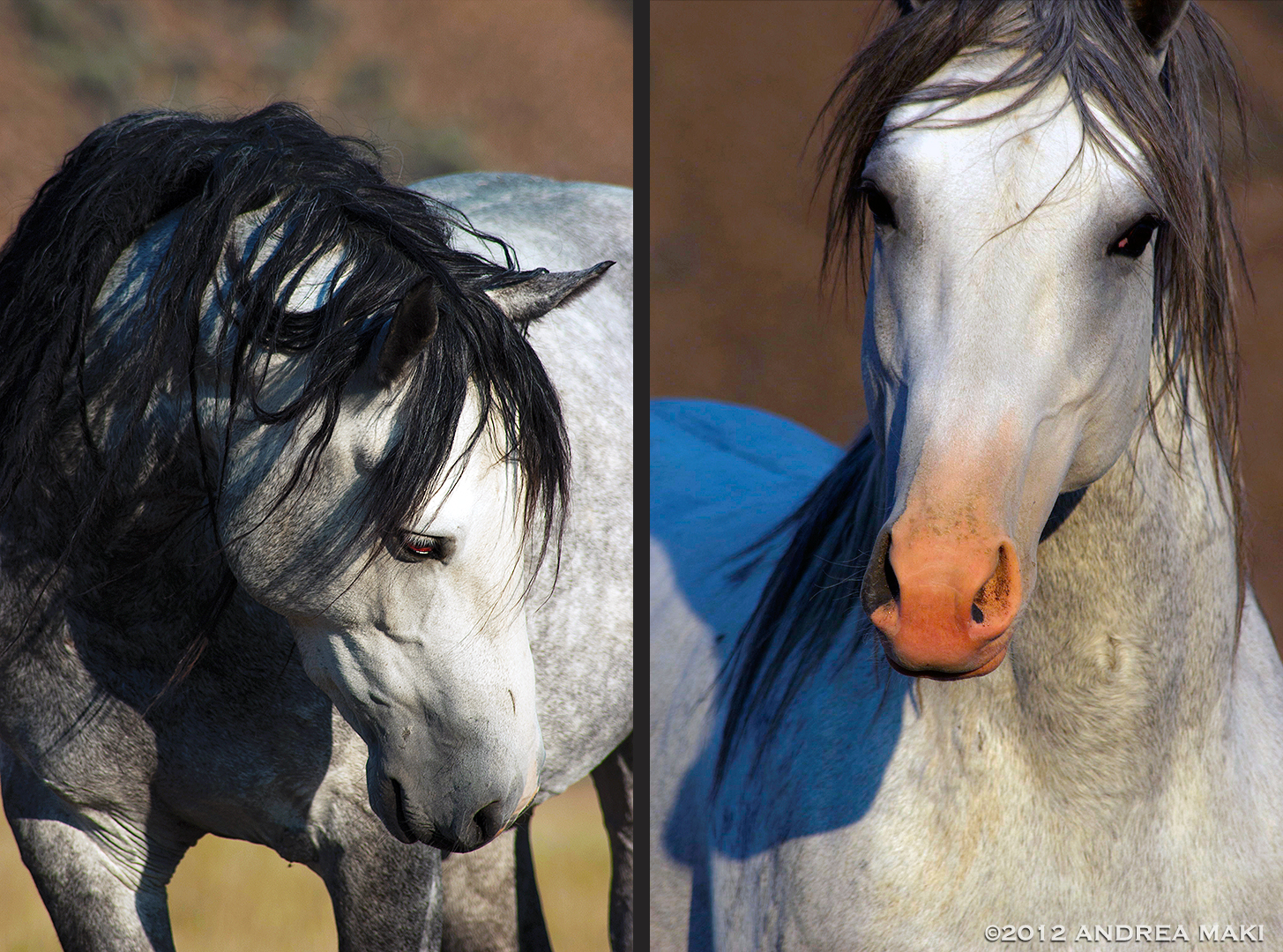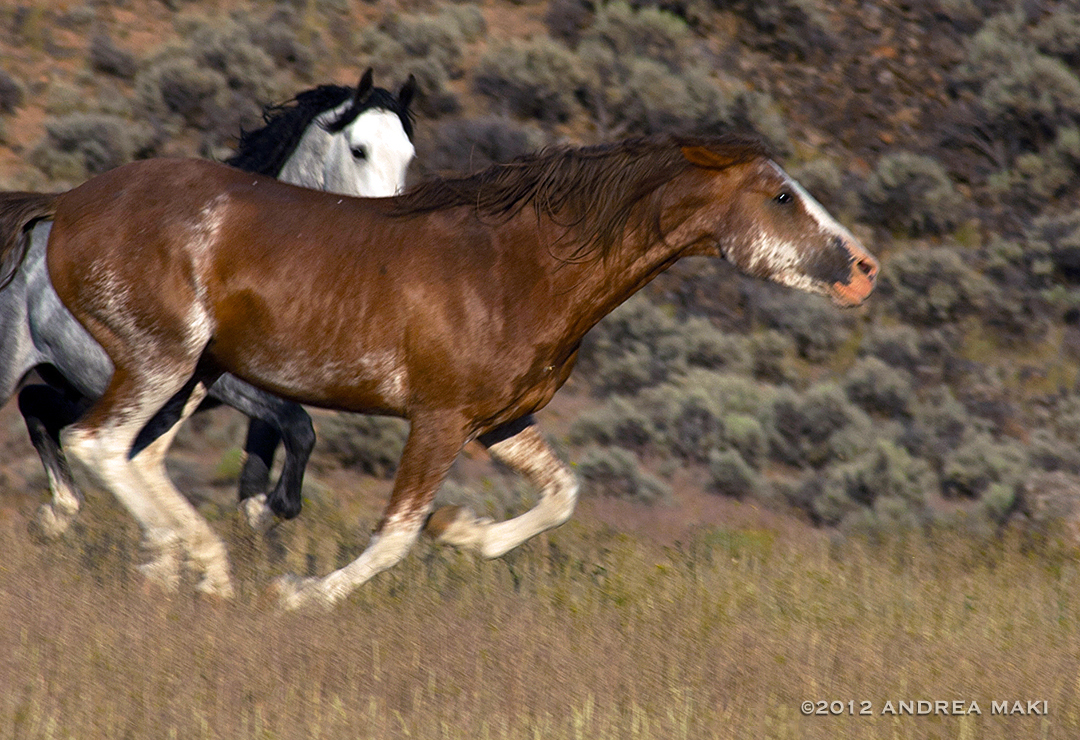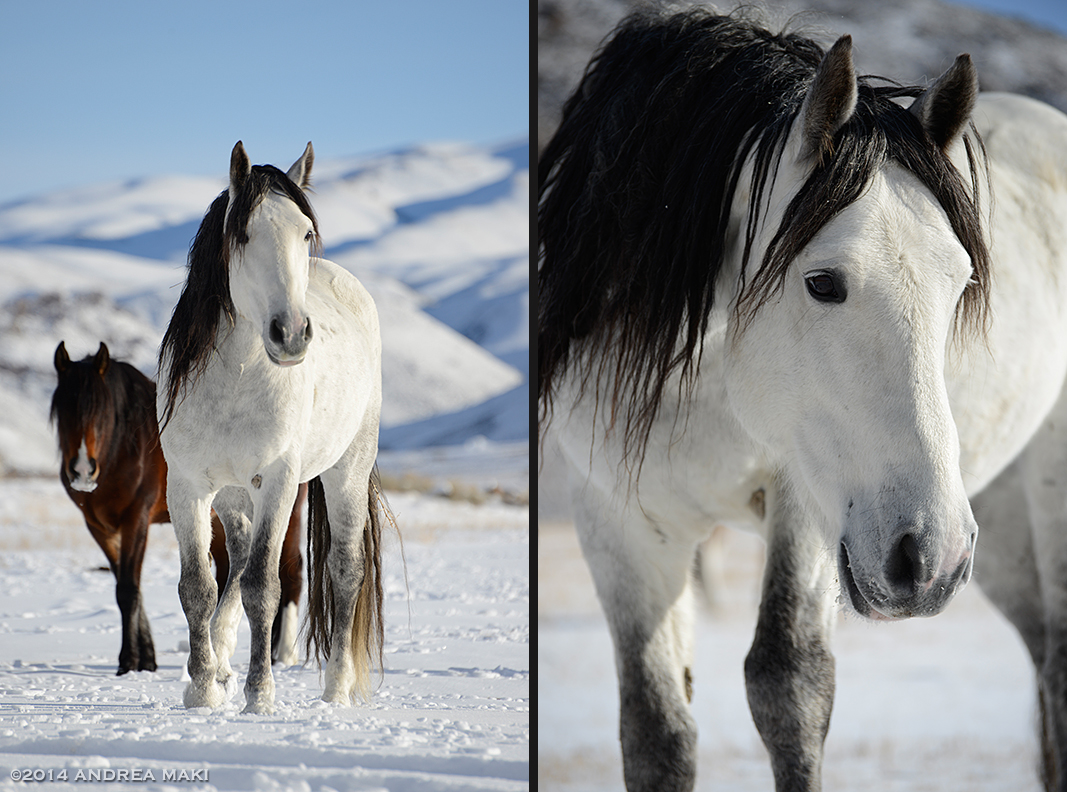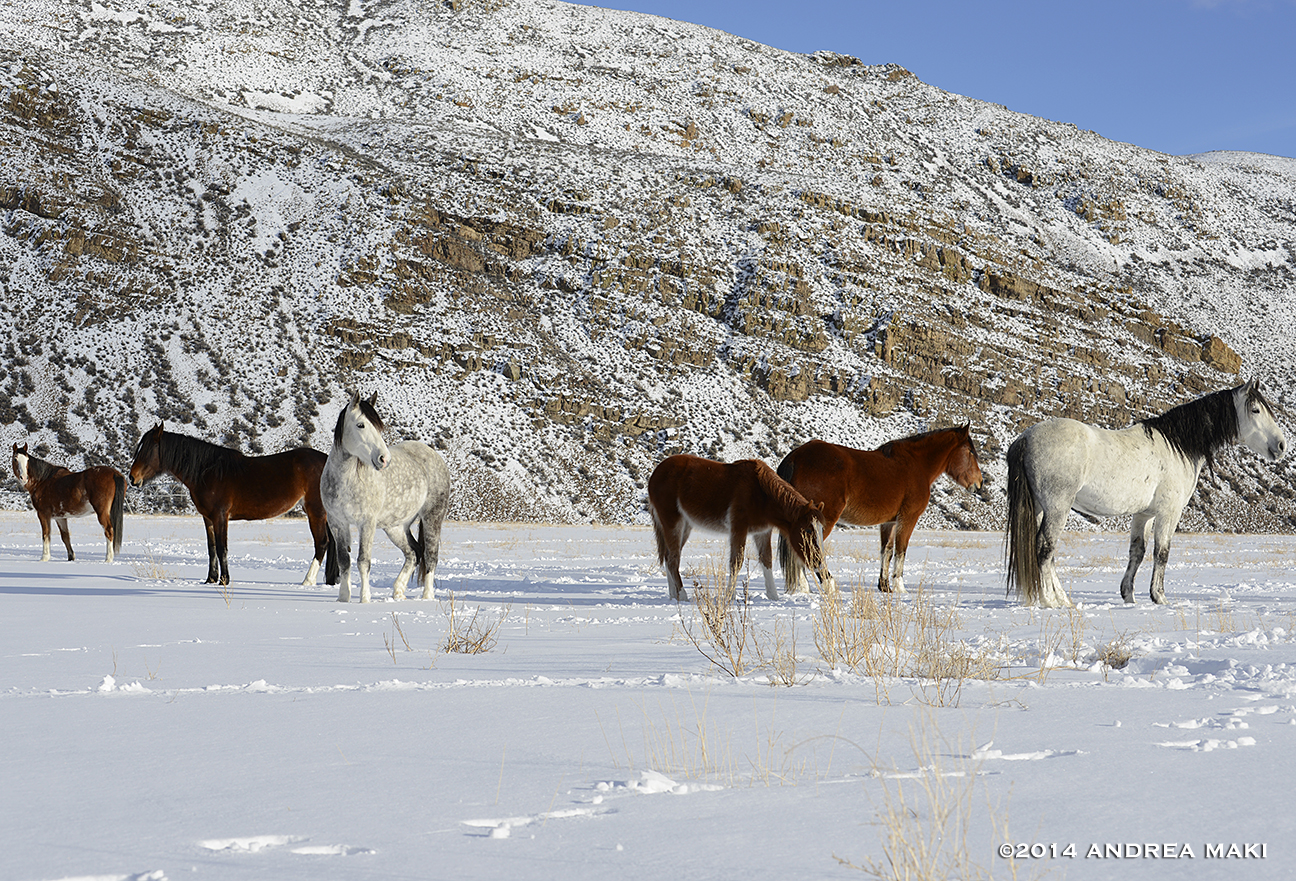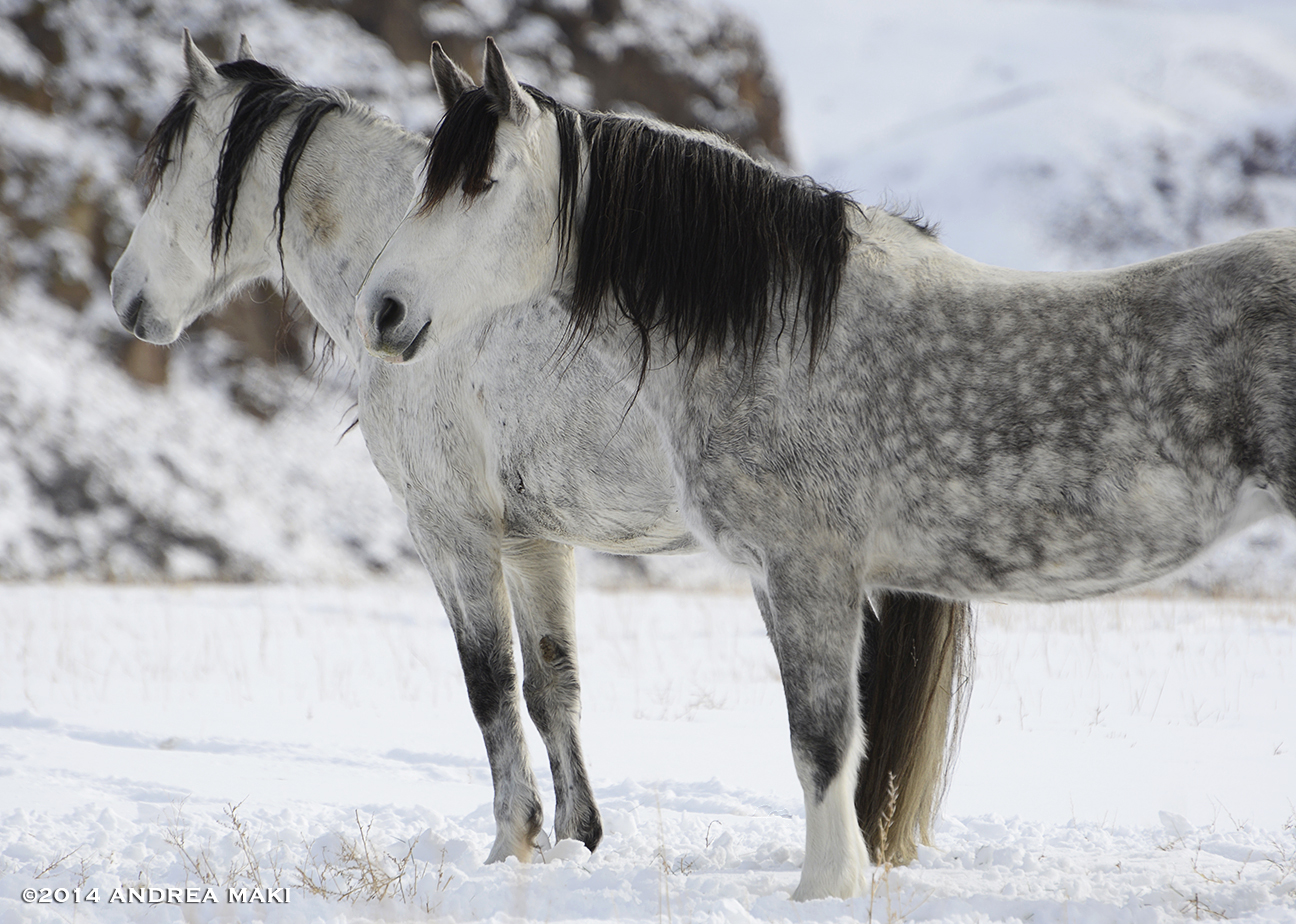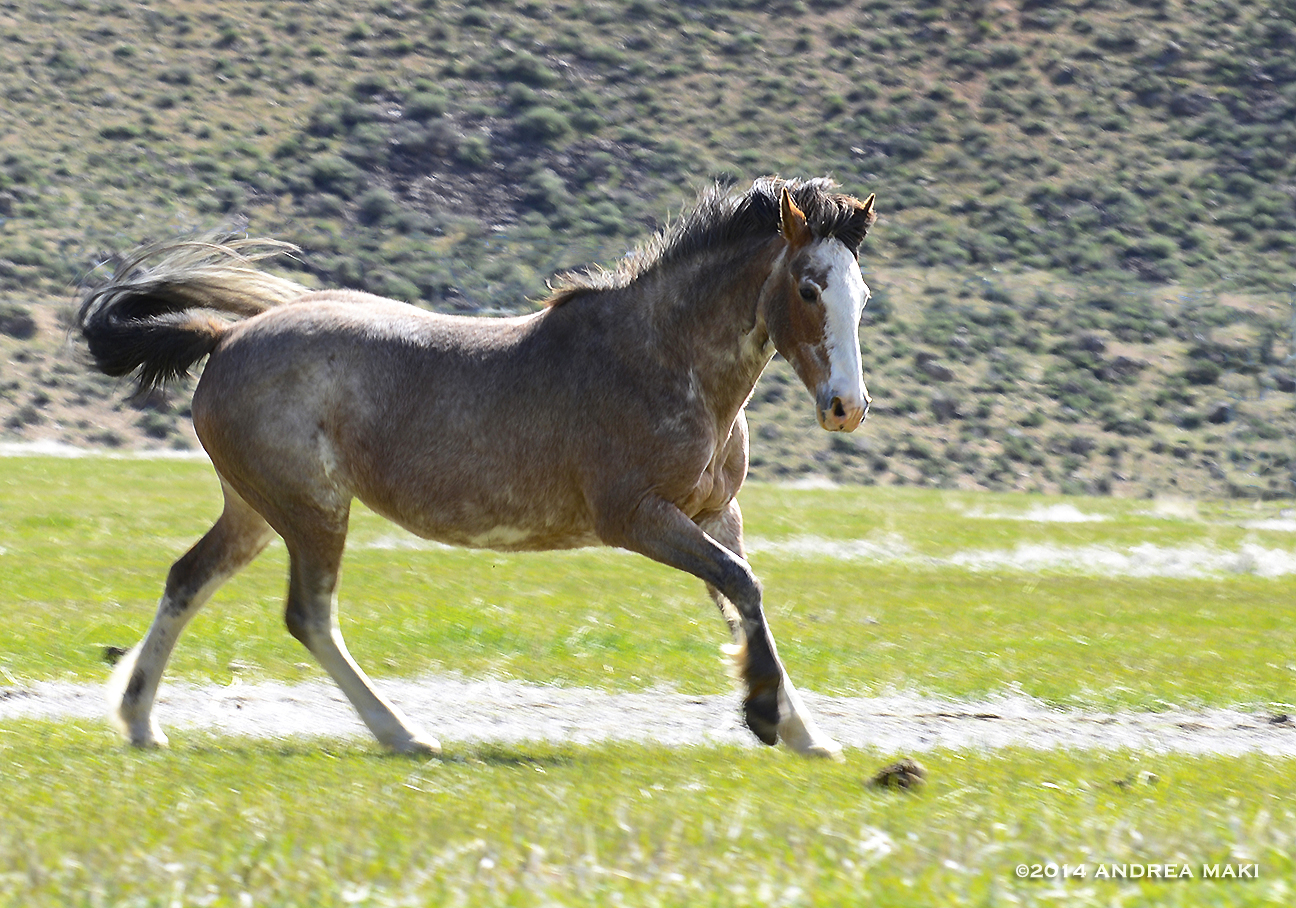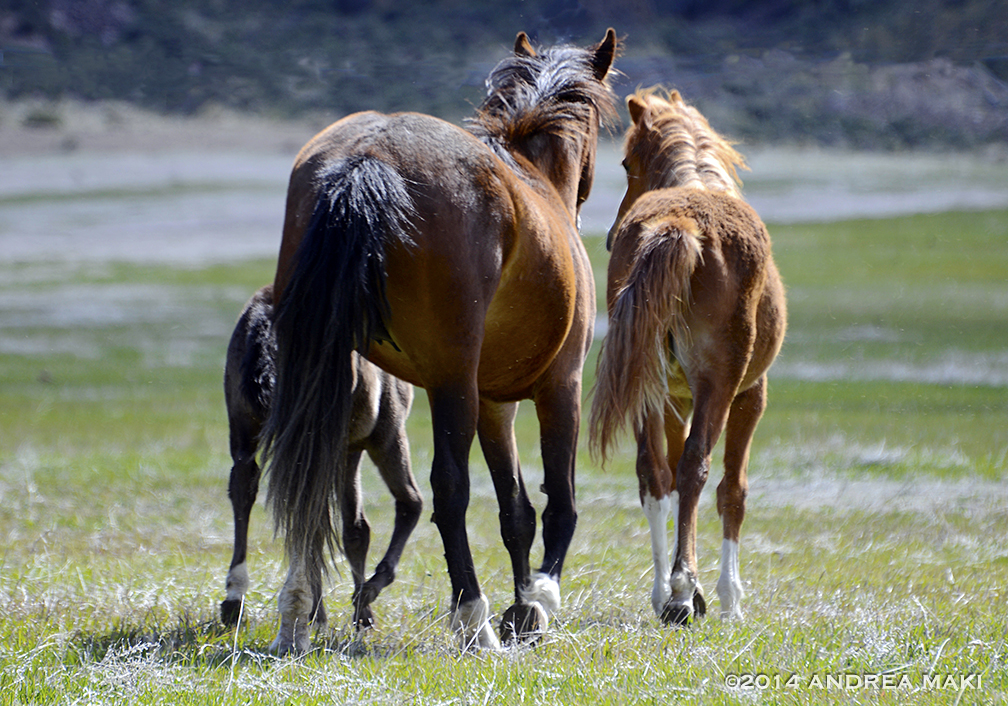WILD WILDS
Wild Love Preserve engages public and private lands. These indigenous environments are filled with flora, fauna and wildlife native to the region - including among others, wild horses, wolves, elk, deer, bear, mountain lions, raptors and fish species. Exploration, discovery, awe and wonder of this rich wildness resonates deep within our souls, inspiring and connecting us with the whole and universal truths that lie within our hearts.
The Challis Herd Management Area (HMA) encompasses 154,150 acres of public land which is home to numerous bands of the native Challis Wild Horse Herd. This same multi-use public land is also divided into multiple grazing parcels for ranching outfits to graze their private livestock.
In 2010 Wild Love Preserve began introducing itself to the Bureau of Land Management (BLM), environmentalists, regional community and ranchers, acknowledging differing perspectives and inviting conversation. While differences exist, our interest in bridging divides and working together has opened doors many said not possible. Wild Love Preserve believes that by listening and working together we have an opportunity to create something new, unique and lasting, and turn a page in the history books.
By design, WLP's multi-faceted approach and joint population management model offers a viable, pro-active and beneficent alternative to the existing government system and has garnered growing support from the BLM, regional community, ranchers, wild horse advocates, environmentalists, wildlife biologists, and youth education programs.
As result of due diligence and fluid communications, the Challis Idaho BLM honored an agreement with WLP to leave two wild bands of the Challis Herd undisturbed at the time of the October 2012 Helicopter Roundup, safeguarding these wild horses to instead be part of our initial joint pilot program utilizing Native PZP-1YR. Subsequently, following the 2012 roundup our collaborative fertility management program began with five wild Challis mares on the range. 2015 brought expansion of this program to address 35 wild mares, then the whole Challis herd in consecutive years following. 2021 marks our eighth year in the field with WLP working collaboratively with the Idaho BLM on the Challis HMA. While based in Challis, in 2016 our collaborative work with the Idaho BLM, stakeholders and partners expanded to all six herd management areas in Idaho, ensuring lasting wildness for Idaho wild horses on their native turf by nurturing healthy and balanced ecosystems as an interconnected whole.
Native PZP-1YR as developed by Jay F. Kirkpatrick, Ph.D and The Science and Conservation Center, is a non-hormonal, biodegradable, protein based fertility control vaccine, proven safe and effective for over 30 years, to include renowned success in population management with the famous Assateague Island wild ponies. It is administered remotely in the field by trained and certified volunteers, and reversible when needed to allow for healthy genetic populations. Thanks to grants from ASPCA and the Vitalogy Foundation, five WLP volunteers attended training and received required certification at the Science and Conservation Center in 2012. Additional partners, volunteers, and Idaho BLM employees trained in 2016.
WLP's Collaborative Population Management Program on the Challis HMA exists in real time with fluid communication between all stakeholders. It has been our goal to be proactive and utilize the opportunity to keep population numbers in check following the 2012 roundup via a humane and responsible management program that includes remotely darting wild mares with Native PZP-1YR in the field. WLP’s ultimate goal with our collaborative approach is to put an end to helicopter use, which also results in taxpayer dollars being saved, while those being spent benefitting local pockets and the community, versus out of state helicopter contractors.
In 2017, WLP was instrumental in curtailing a proposed BLM helicopter roundup, in favor of a hay bait trap gather, due to our longtime collaborative work with the Challis wild horses and fluid communications with the BLM and stakeholders, read more: Challis Wild Horse Bait Trap Gather.
In 2018 Wild Love Preserve was able to work with the Challis-Idaho BLM on the Environmental Assessment of the Challis Herd Management Area as a collective whole to develop a 10-year pro-active management plan for the Challis Herd in conjunction with, and relation to, this indigenous ecosystem on our multi-use public lands as an interconnected whole.
The BLM's November 2019 helicopter roundup of the Challis wild horses was the first conducted in seven years following October 2012, versus every 2-3 years which is the typical time-frame, because of Wild Love's pro-active efforts and collaborative work with the Challis-Idaho BLM and our joint-implementation of a humane Native PZP-1YR management program on the range. As in 2012, WLP was present for the entirety of the helicopter roundup which concluded after seven days, and Wild Love founder Andrea Maki worked on behalf of the Challis wild horses to reduce conflicts between the advocates, public and BLM, leading up, during and following this November 2019 Roundup.
The BLM's management level (AML) for the number of wild horses living in their native habitat on the Challis Herd Management Area is 185-253. The BLM's count in mid-2019 was approximately 400 wild horses after seven years since the 2012 roundup, compared with the 2012 count being over 400 after three years following the 2009 Challis roundup which had also left the count at 185, hence demonstrating that our use of Native PZP-1YR has successfully slowed population growth. Of the approximate 400 wild horses counted by the BLM, 294 were removed in November 2019, and 73 Challis wild horses were returned to the range which brought the total count to the BLM's low AML of 185. Twenty-one wild mares were released, ten were treated with the fertility vaccine PZP-22 and in keeping with our longtime management plan and successful collaborative work since 2013, which also coincides with wild mares part not rounded up that have been part of our initial pilot program with Native PZP-1YR. Twelve mares were treated by the BLM with the fertility drug Gonacon. We will document and compare research results over the coming years.
Read overview of Andrea Maki’s invitational talk at the August 2019 international wildlife fertility conference hosted by The Science and Conservation Center.
2021 also marks the eighth year of our Native PZP-1YR fertility management program with Wild Love’s adopted Challis-Idaho wild horses from the 2012 BLM roundup, which, by design have served as our control herd because management on our private preserve mirrors our collaborative work on public lands. Native PZP has enabled us to keep our numbers at roughly 136 over the last six years, and we’ve witnessed firsthand that it does not result in adverse behavioral issues, does not impact band or herd dynamics, has not altered the natural breeding season, does not negatively impact the fetus or cause birth defects if a pregnant wild mare is darted, and we have healthy babies born to our wild mares ensuring genetic viability.
In 2018 Wild Love Preserve was able to work with the Challis-Idaho BLM on the Environmental Assessment of the Challis Herd Management Area as a collective whole to develop a 10-year pro-active management plan for the Challis Herd in conjunction with, and relation to, this indigenous ecosystem on our multi-use public lands as an interconnected whole.
The BLM's November 2019 helicopter roundup of the Challis wild horses was the first conducted in seven years following October 2012, versus every 2-3 years which is the typical time-frame, because of Wild Love's pro-active efforts and collaborative work with the Challis-Idaho BLM and our joint-implementation of a humane Native PZP-1YR management program on the range. As in 2012, WLP was present for the entirety of the helicopter roundup which concluded after seven days, and Wild Love founder Andrea Maki worked on behalf of the Challis wild horses to reduce conflicts between the advocates, public and BLM, leading up, during and following this November 2019 Roundup.
The BLM's management level (AML) for the number of wild horses living in their native habitat on the Challis Herd Management Area is 185-253. The BLM's count in mid-2019 was approximately 400 wild horses after seven years since the 2012 roundup, compared with the 2012 count being over 400 after three years following the 2009 Challis roundup which had also left the count at 185, hence demonstrating that our use of Native PZP-1YR has successfully slowed population growth. Of the approximate 400 wild horses counted by the BLM, 294 were removed in November 2019, and 73 Challis wild horses were returned to the range which brought the total count to the BLM's low AML of 185. Twenty-one wild mares were released, ten were treated with the fertility vaccine PZP-22 and in keeping with our longtime management plan and successful collaborative work since 2013, which also coincides with wild mares part not rounded up that have been part of our initial pilot program with Native PZP-1YR. Twelve mares were treated by the BLM with the fertility drug Gonacon. We will document and compare research results over the coming years.
Read overview of Andrea Maki’s invitational talk at the August 2019 international wildlife fertility conference hosted by The Science and Conservation Center.
2021 also marks the eighth year of our Native PZP-1YR fertility management program with Wild Love’s adopted Challis-Idaho wild horses from the 2012 BLM roundup, which, by design have served as our control herd because management on our private preserve mirrors our collaborative work on public lands. Native PZP has enabled us to keep our numbers at roughly 136 over the last six years, and we’ve witnessed firsthand that it does not result in adverse behavioral issues, does not impact band or herd dynamics, has not altered the natural breeding season, does not negatively impact the fetus or cause birth defects if a pregnant wild mare is darted, and we have healthy babies born to our wild mares ensuring genetic viability.
Wild Love Preserve nurtures a lasting legacy of wildness. Native wild horses lead the way to preserving the health and balance of respective wild places as a whole. Success requires fluid communications and co-existence between stakeholders, creating vested interests, community engagement and benefit.
• Humane, fiscally responsible, sustainable population management, Native PZP-1YR.
• Nurture the legacy of western wild horses in conjunction with all indigenous wildlife species within this unique ecosystem on our public lands.
• Fluid co-existence with livestock where applicable.
• Cultivate healthy, genetically viable native herds and sustainable ecosystems for future generations to equally experience, nurture, treasure.
“Wild Love Preserve is not but a mere project of passion, this is a human accountability project. I, and accordingly Wild Love Preserve, are committed to the greater good of our wild planet, now and for the well-being of future generations. Wild Love is centered upon humanity, sustainability, two-legged accountability, and our responsibility to the whole.”
GreatNonprofits Top-Rated Nonprofit in 2023 thru 2013. Read Reviews.
Wild Love Preserve is a 501(c)3 Non-Profit, Effective August 2010, Tax ID #27-3729450

